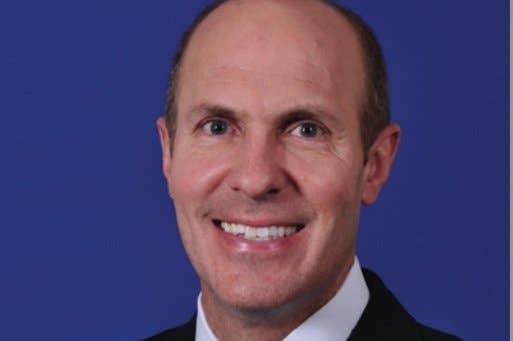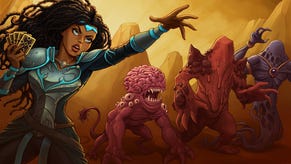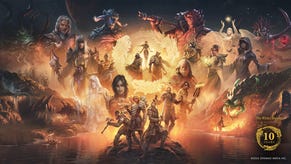Wii U at the tipping point - Nintendo
Scott Moffitt says Mario Kart and Smash Bros. will turn the console's narrative, explains VR's biggest drawback
The Wii U has struggled since its launch nearly two years ago, but the console is ready to pull a 3DS-like resurrection, Nintendo of America executive VP of sales and marketing Scott Moffitt told GamesIndustry International at E3 last week.
The 3DS stumbled at launch, enduring sluggish sales until Nintendo instituted a drastic price cut on the hardware. While Moffitt noted the impact of the price cut, he said a pair of first-party releases was another key driver in reversing the handheld's fortunes.
"There are a lot of people that are going to have a hard time resisting buying a Wii U once Smash Bros comes out."
"We had the price cut in August [2011], and then we had Mario Kart 7, Super Mario 3D Land, which really drove sales that first holiday, and on 3DS we haven't looked back," Moffitt said. "So we've had momentum ever since that first holiday and we've got now 260 some games in the library and some of the best, most highest rated, most highest quality content we've ever had on that platform. Everything we launched seems to do above forecast and surprises us on the positive side."
The situation with the Wii U is similar, Moffitt said, adding that the console is about to reach a very similar tipping point.
"As I look at what we have coming this holiday, now with Mario Kart and Super Smash Bros, plus the innovation of Amiibo, I think we are right at that tipping point where we have a lot of great content that is about to be released for that platform that's going to tempt gamers into buying the system," Moffitt said. "From the comments I'm reading online, and following gamers' comments, I think there are a lot of people that are going to have a hard time resisting buying a Wii U once Smash Bros comes out. I think that's going to be a major hardware driver for us. So that's the narrative we hope that plays out and that I think we are starting to see play out."
One avenue that Nintendo won't be pursuing to spike Wii U sales is an unbundling of the GamePad, Xbox One Kinect-style. Both companies pitched the peripherals as essential components of their visions, but when Xbox One sales lagged, Microsoft found the demands of potential customers more convincing than their original plans. While Moffitt said Nintendo is still working to create gameplay experiences that demonstrate the true benefits of the Wii U GamePad, he said removing it from the hardware bundle is not in consideration.
"We think GamePad is the only innovation that's come in this new generation of consoles. So we have the only real point of difference."
"We think GamePad is the only innovation that's come in this new generation of consoles. So we have the only real point of difference. Certainly graphics are faster, graphics are better. This is not a real innovation for gamers. We are fully committed to leveraging the GamePad, to keeping it bundled with the system."
As for the problem of third-party support for Wii U, Moffitt namechecked the continued efforts of partners like Sega, Warner Bros. Interactive Entertainment, and Activision. While some big companies who have dropped the system, Moffitt understood why that would have happened and acknowledged it was Nintendo's problem to fix.
"It's all about driving the install base and so that's our work to do, right? We need to get to a critical mass where it makes financial sense for them," he said.
Moffitt added that third-party games don't all come from the big AAA publishers. He touted the company's efforts in lowering the barriers to entry for indie developers looking to publish on Nintendo platforms.
"We talked to a lot of them before launching the Wii U and we addressed some of the issues that really were holding some of them back from developing realistic content on our platform," Moffitt said. "At least for the indie community, we've become a lot easier to do business with and we're seeing a steady flow of content now."
However, those efforts were largely invisible at E3. Where Microsoft and Sony devoted sections of their booths to indie developers working on Xbox One and PlayStation 4 respectively, there was no such equivalent in Nintendo's booth.
"[VR has] one disadvantage relative to what we know is often very fun for gamers, which is playing games socially in a living room. This is a very single player solitary gaming experience."
"With any show, you have choices to make," Moffitt said. "Every time I go down to our booth floor and see how many people are waiting to play Super Smash Bros, when I look outside at the Best Buys... Last night we had four hours of game play on Super Smash Bros. and we had 1,000 people in line. We had to turn people away. So it's a tough choice for us as a platform holder. We don't have enough game stations down there on Smash Bros. We try to feature as much content as we can in the limited space that we have. Right now we just have a lot of demand for Super Smash Bros. We could have used 10 more game stations on that game alone. Choices have to be made."
Finally, Moffitt weighed in on the VR trend. While Nintendo has a distant history in the field with the Virtual Boy headset, Moffitt suggested Nintendo was taking a wait-and-see approach toward returning to it
"What I'd say is it's appealing technology," Moffitt said. "It's interesting. We're going to follow it closely to see where it goes. It's got a lot of advantages. It's got one disadvantage relative to what we know is often very fun for gamers, which is playing games socially in a living room. This is a very single player solitary gaming experience. Not all of our games are fun to play with multiple people in a living room in front of a game console but it doesn't lend itself to that kind of an experience as well as what Wii U does now. That would be a disadvantage of going in that direction. Could it be a nice addition to our hardware platform? Sure."
For more from Moffitt, check out the first part of the interview, which ran yesterday.









